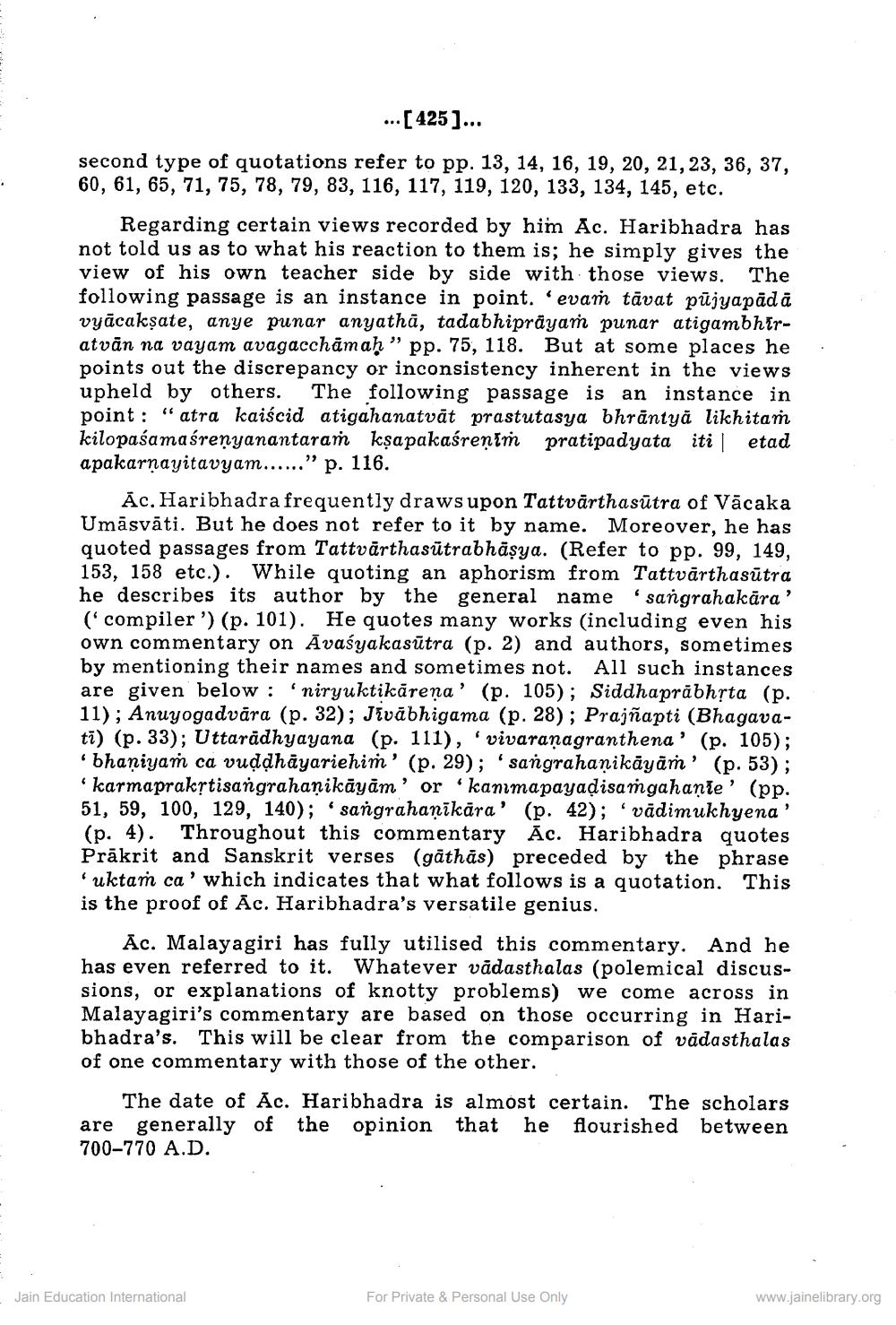________________
... [425)...
second type of quotations refer to pp. 13, 14, 16, 19, 20, 21, 23, 36, 37, 60, 61, 65, 71, 75, 78, 79, 83, 116, 117, 119, 120, 133, 134, 145, etc.
Regarding certain views recorded by him Ac. Haribhadra has not told us as to what his reaction to them is: he simply gi view of his own teacher side by side with those views. The following passage is an instance in point. 'evam tāvat pūjyapada vyācakşate, anye punar anyathā, tadabhiprāyaṁ punar atigambhiratvān na vayam avagacchamah" pp. 75, 118. But at some places he points out the discrepancy or inconsistency inherent in the views upheld by others. The following passage is an instance in point: "atra kaiścid atigahanatvāt prastutasya bhrāntyā likhitam kilopasamasrenyanantarań kşapakaśrenim pratipadyata iti etad apakarnayitavyam......" p. 116.
Ac, Haribhadra frequently draws upon Tattvärthasūtra of Vācaka Umāsvāti. But he does not refer to it by name. Moreover, he has quoted passages from Tattvārthasūtrabhāsya. (Refer to pp. 99, 149, 153, 158 etc.). While quoting an aphorism from Tattvärthasūtra he describes its author by the general name "sangrahakāra'
(compiler ') (p. 101). He quotes many works (including even his own commentary on Āvaśyakasūtra (p. 2) and authors, sometimes by mentioning their names and sometimes not. All such instances are given below : niryuktikārena' (p. 105); SiddhaprabhȚta (p. 11); Anuyogadvāra (p. 32); Jīvābhigama (p. 28); Prajñapti (Bhagavati) (p. 33); Uttaradhyayana (p. 111), vivaranagranthena' (p. 105); .bhaniyam ca vuddhāyariehim' (p. 29); 'sangrahanikāyāṁ' (p. 53);
karmaprakrtisangrahanikāyām' or 'kanımapayadisamgahanie' (pp. 51, 59, 100, 129, 140); 'sangrahaņīkāra' (p. 42); vādimukhyena' (p. 4). Throughout this commentary Ac. Haribhadra quotes Prākrit and Sanskrit verses (gāthas) preceded by the phrase
uktam ca' which indicates that what follows is a quotation. This is the proof of Ac. Haribhadra's versatile genius.
Ac. Malayagiri has fully utilised this commentary. And he has even referred to it. Whatever vādasthalas (polemical discussions, or explanations of knotty problems) we come across in Malayagiri's commentary are based on those occurring in Haribhadra's. This will be clear from the comparison of vādasthalas of one commentary with those of the other.
The date of Ac. Haribhadra is almost certain. The scholars are generally of the opinion that he flourished between 700-770 A.D.
Jain Education International
For Private & Personal Use Only
www.jainelibrary.org




